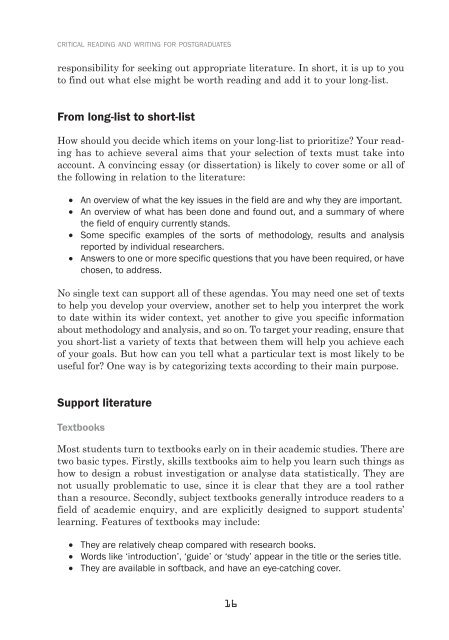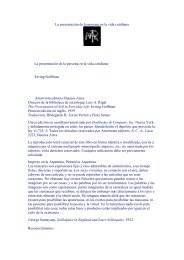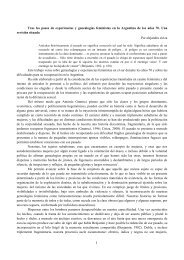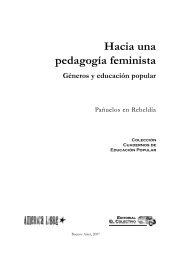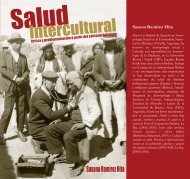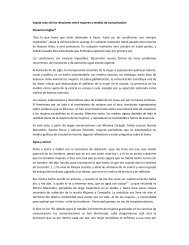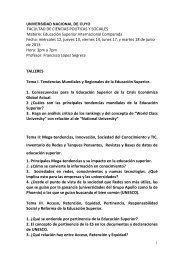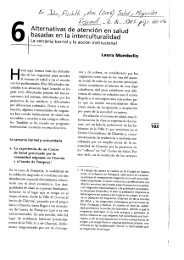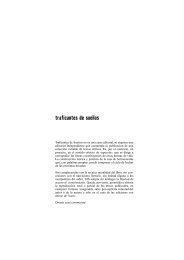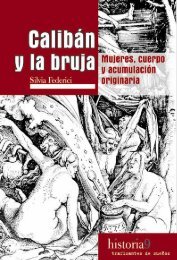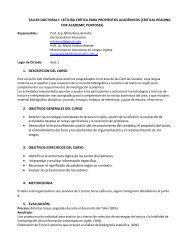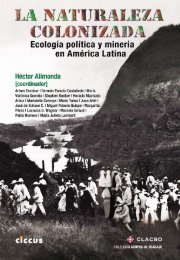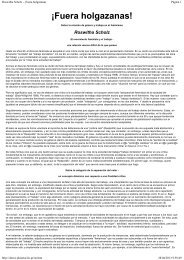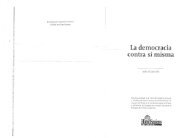Critical Reading and Writing for Postgraduates - Doctorado en ...
Critical Reading and Writing for Postgraduates - Doctorado en ...
Critical Reading and Writing for Postgraduates - Doctorado en ...
You also want an ePaper? Increase the reach of your titles
YUMPU automatically turns print PDFs into web optimized ePapers that Google loves.
critical reading <strong>and</strong> writing <strong>for</strong> postgraduates<br />
responsibility <strong>for</strong> seeking out appropriate literature. In short, it is up to you<br />
to find out what else might be worth reading <strong>and</strong> add it to your long-list.<br />
From long-list to short-list<br />
How should you decide which items on your long-list to prioritize? Your reading<br />
has to achieve several aims that your selection of texts must take into<br />
account. A convincing essay (or dissertation) is likely to cover some or all of<br />
the following in relation to the literature:<br />
••<br />
An overview of what the key issues in the field are <strong>and</strong> why they are important.<br />
••<br />
An overview of what has be<strong>en</strong> done <strong>and</strong> found out, <strong>and</strong> a summary of where<br />
the field of <strong>en</strong>quiry curr<strong>en</strong>tly st<strong>and</strong>s.<br />
••<br />
Some specific examples of the sorts of methodology, results <strong>and</strong> analysis<br />
reported by individual researchers.<br />
••<br />
Answers to one or more specific questions that you have be<strong>en</strong> required, or have<br />
chos<strong>en</strong>, to address.<br />
No single text can support all of these ag<strong>en</strong>das. You may need one set of texts<br />
to help you develop your overview, another set to help you interpret the work<br />
to date within its wider context, yet another to give you specific in<strong>for</strong>mation<br />
about methodology <strong>and</strong> analysis, <strong>and</strong> so on. To target your reading, <strong>en</strong>sure that<br />
you short-list a variety of texts that betwe<strong>en</strong> them will help you achieve each<br />
of your goals. But how can you tell what a particular text is most likely to be<br />
useful <strong>for</strong>? One way is by categorizing texts according to their main purpose.<br />
Support literature<br />
Textbooks<br />
Most stud<strong>en</strong>ts turn to textbooks early on in their academic studies. There are<br />
two basic types. Firstly, skills textbooks aim to help you learn such things as<br />
how to design a robust investigation or analyse data statistically. They are<br />
not usually problematic to use, since it is clear that they are a tool rather<br />
than a resource. Secondly, subject textbooks g<strong>en</strong>erally introduce readers to a<br />
field of academic <strong>en</strong>quiry, <strong>and</strong> are explicitly designed to support stud<strong>en</strong>ts’<br />
learning. Features of textbooks may include:<br />
••<br />
They are relatively cheap compared with research books.<br />
••<br />
Words like ‘introduction’, ‘guide’ or ‘study’ appear in the title or the series title.<br />
••<br />
They are available in softback, <strong>and</strong> have an eye-catching cover.<br />
16


